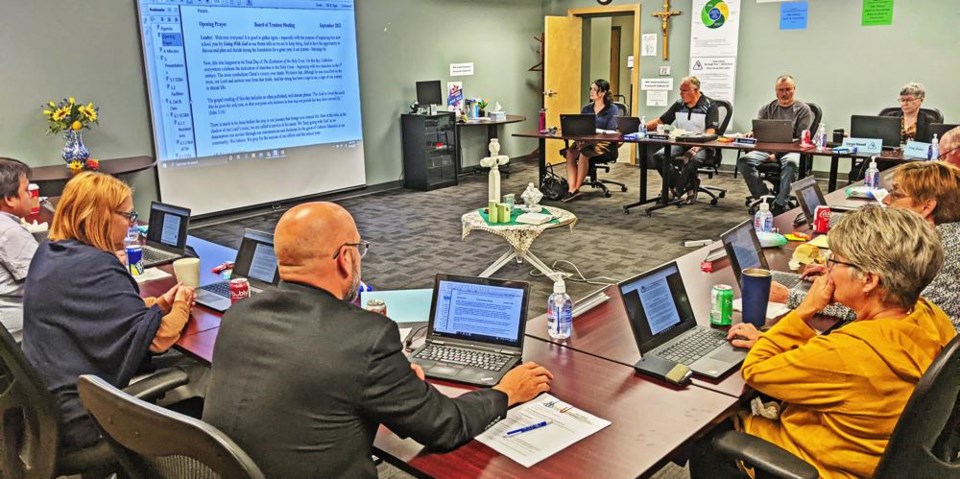WEYBURN – Two representatives of the Settlement Workers in Schools program (SWIS) gave a presentation to the trustees of the Holy Family school division on Wednesday evening, explaining their role in helping the children of newcomer families to the region.
Aimee Haralson, based in Estevan, and Cassy Baumgartner of Weyburn, talked about how they have been able to help new families, some of whom have no English skills when they first arrive. SWIS is under the umbrella of Southeast Advocates for Employment, and is associated with Southeast Newcomer Services.
The two workers cover all of the schools in southeast Saskatchewan, with Haralson looking after 21 schools, and Baumgartner has 19, in the Holy Family and SE Cornerstone school divisions.
A third worker is involved with students in Grades 10-12, helping them apply for post-secondary education or employment after graduation.
“At the beginning we help everyone with settlement,” she said, noting they help newcomers apply for a health card, make doctor appointments, and various other needs to help them get settled into their new community. For students, they help them get settled into the classroom, letting staff know of any special needs or requirements for the children.
“We try to take care of them until they get comfortable in the community and they are visible, they are being seen and appreciated,” said Haralson, adding they meet with groups of students, at times via Zoom.
If there are events, they get everyone to contribute and help, even those in Grade 2.
“We connect with families at all levels, and find out what is new and exciting,” she said, noting they connect with families through messenger chat, and find out what is going on with their children at school.
In parent meetings, they find out what supports the parents might need at home, and they also connect with the schools to find out what needs there are from teachers. They attend back-to-school events or meetings as they are able, with Haralson noting that on Aug. 31 alone, she visited a number of schools.
They help families make connections in the community, with programs or services in the community, such as art, recreation or sports.
“We try to organize meaningful events and help them with integration by connecting them with volunteer options,” said Haralson.
There are a number of programs in place, she added, such as the peer leadership training, where new students are helped to take leadership, plus a wide variety of learning opportunities, ranging from learning how to play guitar to learn-to-swim, learning about lacrosse, volleyball, basketball, and learning how to draw as a few examples.
“We organize cultural events, potlucks, cultural games, and we have a Christmas part or a year-end gathering,” she added, as well as practical courses, such as food safety, the basics of budgeting, getting a line of credit and applying for university.
Asked what they might need help with, Haralson said they would like to see more language help for the parents. The children pick up English fairly quickly at school, but some parents come with no English at all.
She noted this has been a struggle for some parents, particularly those who have come here from Ukraine, escaping the war there with Russia.
“This is hard because they didn’t have English as a mode of instruction,” said Haralson, noting if she’s meeting with Ukrainian families, she always has to make sure she has a device with a translator app on it.
On occasion, they have been able to make use of a Ukrainian parent who could speak English, but that person isn’t always available.
They also have a need at times of someone who could help with subjects like math, and asked if they know of any retired teachers who could help them by helping students with their homework, that would be appreciated.






